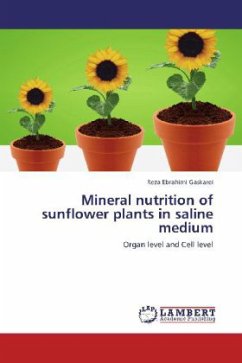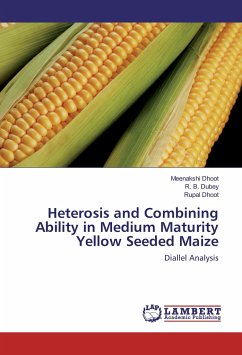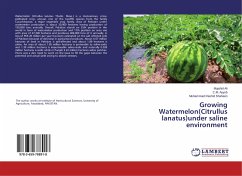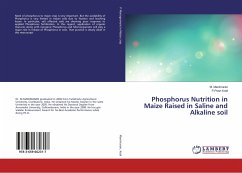Root cells contain very little sodium within the cell organelles because for growth and development of sunflower, K+, Ca2+ and Cl- are recognized as essential nutrients while the role of Na+ remains debate. In cortical cells of roots subjected to saline conditions, sodium content in the cytoplasm is more than that in intercellular space. This forms a strong evidence that an important factor in salt damage in sunflower plants is not dehydration due to extracellular accumulation of sodium and chloride, as suggested in the Oertli hypothesis. Under saline conditions, cell wall seems to have an important role in providing potassium for cell cytoplasm in roots, and potassium from apoplastic pathway gets redistributed to symplastic pathway because radial transport of K+ in roots is symplastic. Current investigations reveal that in sunflower roots, calcium content of cell wall is considerably reduced by NaCl salinity.Displacement of cell wall- associated calcium by sodium and magnesium ions is likely to increase membrane permeability and loss of Ca2+/Na+ selectivity.
Bitte wählen Sie Ihr Anliegen aus.
Rechnungen
Retourenschein anfordern
Bestellstatus
Storno








